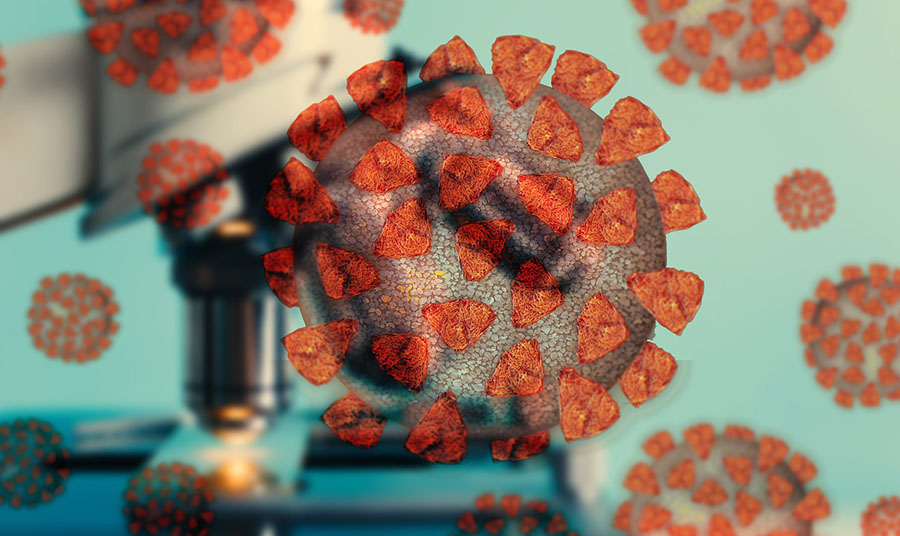Finding an effective treatment for Alzheimer's disease has been elusive as many seemingly promising avenues of research did not prove out in clinical trials. Biogen Inc. (BIIB:NASDAQ) appeared to be going down the same path after it pulled the plug on its phase 3 aducanumab trials in March. But, in a stunning reversal, Biogen recently announced that, after looking at a more complete set of phase 3 data that included patients receiving the highest dosage, it has concluded the treatment was effective after all.
A small-cap firm, ProMIS Neurosciences Inc. (PMN:TSX; ARFXF:OTCQB), believes its Alzheimer's treatment currently in development, PMN310, will run circles around Biogen's, and is developing treatments for Parkinson's, ALS and other neurodegenerative diseases, all of which are caused by the progressive death of nerve cells.
Noble Capital Markets has seconded this view. Analyst Cosme Ordonez, in an October 24 report, wrote, "We believe ProMIS' PMN310 is a superior drug. . .Although PMN310 is still in preclinical development, we believe it has the potential to become the preferred antibody for the treatment of Alzheimer's."
"In our opinion, ProMIS' preclinical results validate the hypothesis that PMN310 has the potential to become an efficacious drug for the treatment of Alzheimer's disease. Despite recent setbacks in the Alzheimer's area, we believe that ProMIS will be successful as the company has developed a unique, distinctive therapeutic approach," Ordonez concluded.
Today no effective treatment that attacks the root cause of the disease is available for chronic neurodegenerative diseases; the treatments that do exist merely temporarily slow down symptoms without any effect on disease progression.
"When Biogen stopped its aducanumab trial in March," ProMIS CEO Elliot Goldstein, MD, told Streetwise Reports, "it got tremendous negative attention; people felt that the science must be wrong, that targeting amyloid beta wasn't the right thing to do. Investors left the sector in droves."
"But I believe Biogen was targeting the wrong kind of amyloid beta; it comes in several forms and most are harmless," Goldstein explained. "The target is the small clumps of amyloid beta called oligomers that when they misfold are highly toxic and kill neurons. Most of the failed studies were using compounds designed to mainly knock out plaque or other normal, non-toxic forms of amyloid, and while these treatments can have some effect on the toxic form, they weren't selective and specific for it."
When Biogen received more data from its study, "especially from patients who had been receiving the highest dosage, it turns out that the EMERGE study was unequivocally positive. At the highest dose of 10 milligrams per kilogram body weight aducanumab was blocking enough of the toxic form of amyloid beta to make a significant difference. But the dosage can't be increased further because of toxic side effects, most notably swelling of the brain, also called edema. About 35% of the patients in Biogen's trials had this dose limiting side effect," Goldstein noted.
"We like to say that aducanumab is approvable but certainly improvable; it's not selective enough for the toxic oligomers that are the root cause of Alzheimer’s. If a lot of the treatment goes to bust harmless plaques, you are wasting a lot of the ammunition on the wrong target," Goldstein stated.
It's not easy to develop antibodies against these toxic oligomers because they are "shape shifters," Goldstein said. "Misfolded oligomers have unstructured regions, so you can't isolate them using the usual physical techniques for making antibodies. To solve this challenge, we used our proprietary thermodynamic algorithms that run on supercomputers to compute exactly where they're misfolding, and the shape of the misfolding, and then we create, test and validate antibodies that work selectively against that specific toxic form."
That one antibody targeting toxic oligomers of amyloid will work only against the misfolded protein that leads to Alzheimer's, but the principle is the same for some of the other neurodegenerative diseases. Small misfolded clumps of the protein called alpha-synuclein are a root cause of Parkinson's disease. When the protein called TDP-43 forms misfolded toxic clumps, it leads to amyotrophic lateral sclerosis (ALS). ProMIS has candidate antibody therapies for all three diseases.
"Selectivity for the toxic oligomer is very important," Goldstein stressed. "You want to aim at the right target so that you don't waste ammunition and cause damage and side effects. By avoiding side effects, you can raise the dosage so that it can be more effective."
Goldstein is pleased with Biogen's success. "First, we believe Biogen has a strong likelihood of receiving FDA approval for aducanumab, and that means hope at the end of the tunnel for Alzheimer's patients and their caregivers."
For ProMIS, Goldstein sees his company's PMN310 antibody becoming the next generation, best-in-class treatment for Alzheimer's. "We have preclinical evidence that PMN310 selectively targets and neutralizes the neurotoxicity without binding to normal, non-toxic forms of amyloid, such as plaque."
PMN310 is in the late preclinical stage of development. Final steps to an IND file include completing the scale up manufacturing of PMN310, followed by start of the clinical trial program.
To raise the funds to proceed, ProMIS is in discussion with "more than five and less than 10" pharmaceutical companies, some at the term sheet stage, Goldstein stressed. "Because we have distinct antibody programs running simultaneously for Alzheimer's, Parkinson's, ALS and frontotemporal dementia (FTD), there could potentially be more than one deal in the offing in the next three to twelve months."
ProMIS has approximately 261 million shares outstanding, and around 25% are owned by insiders. The company plans to uplist to the NASDAQ when conditions become favorable.
Noble Capital Markets opined on October 24, "We believe ProMIS's currently deflated share price does not reflect the potential of its lead drug PMN310 and unique mechanism of action targeting the true culprit of Alzheimer's disease, which makes it potentially superior to aducanumab. We are reiterating our Outperform rating and $1.00 target price on the stock." The stock is currently trading at CA$0.16.
[NLINSERT]Disclosure:
1) Patrice Fusillo compiled this article for Streetwise Reports LLC and provides services to Streetwise Reports as an employee. She or members of her household own securities of the following companies mentioned in the article: None. She or members of her household are paid by the following companies mentioned in this article: None.
2) The following companies mentioned in this article are billboard sponsors of Streetwise Reports: None. Click here for important disclosures about sponsor fees.
3) Comments and opinions expressed are those of the specific experts and not of Streetwise Reports or its officers. The information provided above is for informational purposes only and is not a recommendation to buy or sell any security.
4) The article does not constitute investment advice. Each reader is encouraged to consult with his or her individual financial professional and any action a reader takes as a result of information presented here is his or her own responsibility. By opening this page, each reader accepts and agrees to Streetwise Reports' terms of use and full legal disclaimer. This article is not a solicitation for investment. Streetwise Reports does not render general or specific investment advice and the information on Streetwise Reports should not be considered a recommendation to buy or sell any security. Streetwise Reports does not endorse or recommend the business, products, services or securities of any company mentioned on Streetwise Reports.
5) From time to time, Streetwise Reports LLC and its directors, officers, employees or members of their families, as well as persons interviewed for articles and interviews on the site, may have a long or short position in securities mentioned. Directors, officers, employees or members of their immediate families are prohibited from making purchases and/or sales of those securities in the open market or otherwise from the time of the interview or the decision to write an article until three business days after the publication of the interview or article. The foregoing prohibition does not apply to articles that in substance only restate previously published company releases. As of the date of this article, officers and/or employees of Streetwise Reports LLC (including members of their household) own securities of ProMIS, a company mentioned in this article.
6) This article does not constitute medical advice. Officers, employees and contributors to Streetwise Reports are not licensed medical professionals. Readers should always contact their healthcare professionals for medical advice.



























































